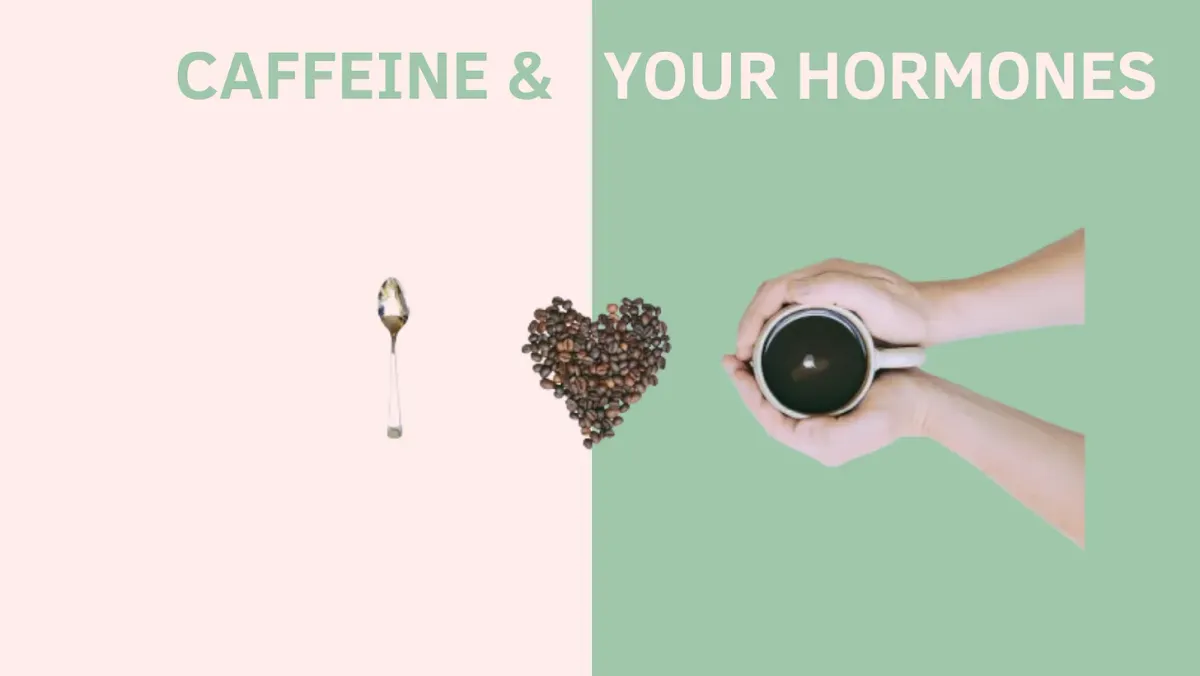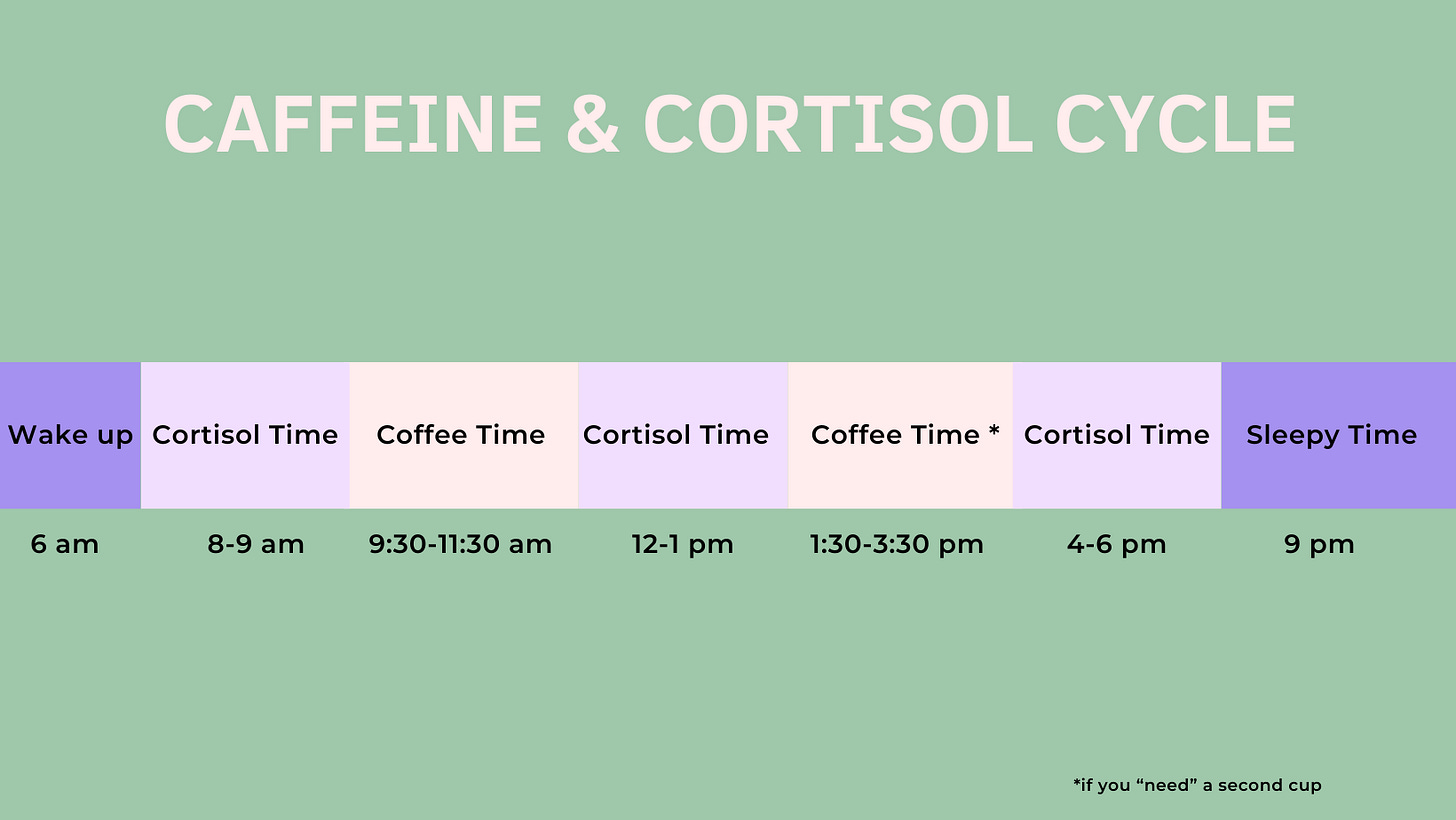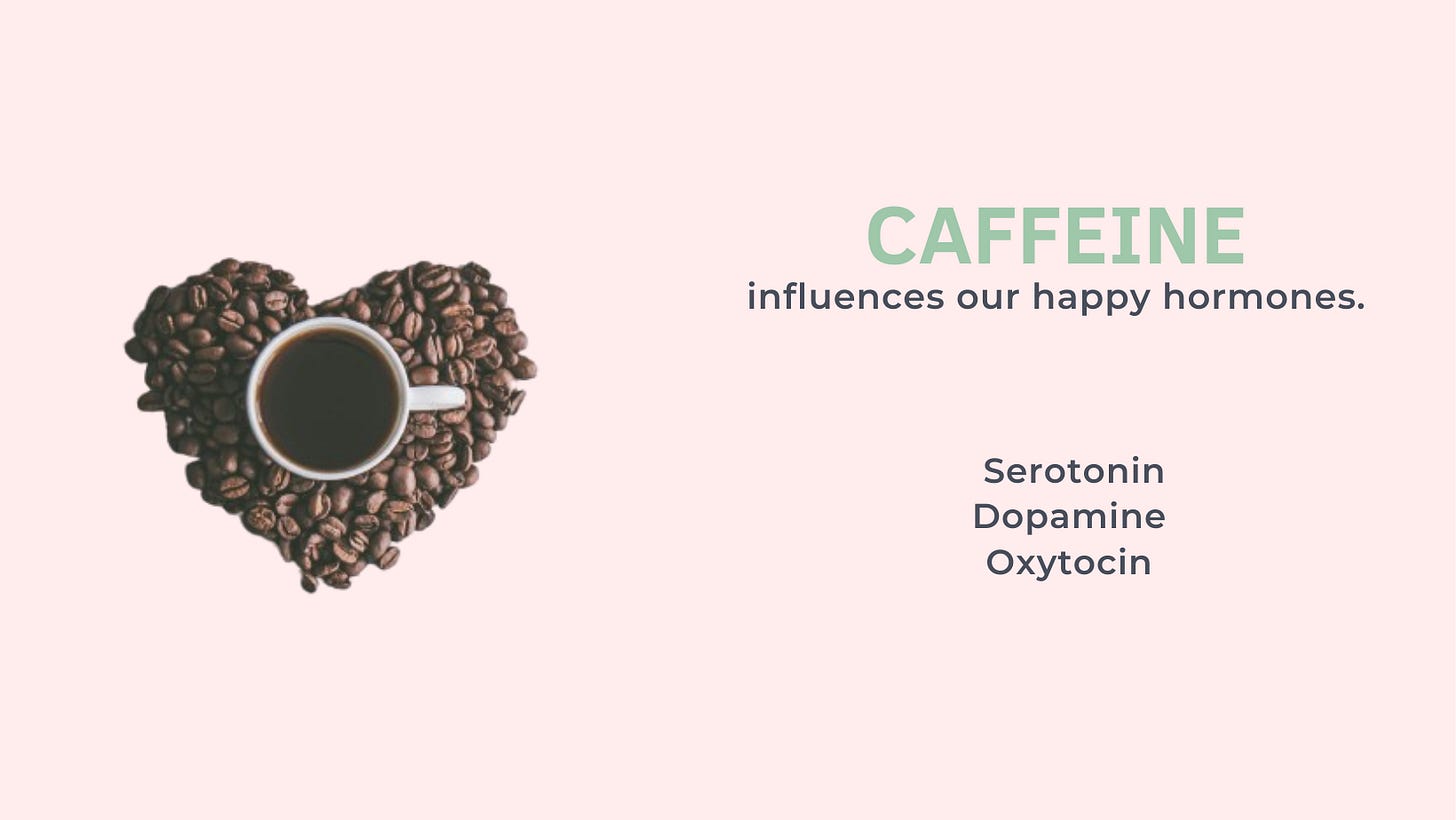Spilling the beans

“No wonder your baby doesn’t sleep well. If you quit drinking coffee, everything will be fine. ”, was one sentence I’ve heard lately. And even though I didn’t believe this conclusion I went down the rabbit hole and looked for some scientific papers on this topic.
And what would be more fitting than looking for some information in the middle of the night while waiting for my baby to fall asleep?
The Background
Caffeine, especially coffee, is a trusty sidekick for many. Some may even drink their coffee “before they’re able to do anything else”. But I’m assuming that many don’t know how caffeine impacts their hormones, especially for ladies.
Caffeine gets a bad rap, but it is not all bad and actually has some pretty powerful effects. However, the timing and the dose matter for performance and (hormonal) health.
Caffeine and hormones have a connection. Unfortunately, it's not as straightforward as I had hoped, but the good news: caffeine is not the sole culprit behind all hormonal changes. Other factors like diet, exercise, sleep, stress, and even supplements also play a role.
But let’s take a step back and look at some hormones to better understand what caffeine might do to your hormone levels.
Hormones
Estrogen and Progesterone
Estrogen and progesterone are the dynamic duo of female hormones. (Read more about estrogen as a superpower here)
Caffeine seems to have a different impact on estrogen levels depending on your racial background.
For Asian women, higher caffeine intake might lead to higher estrogen levels, while for white women, it might do the opposite - lower estrogen levels. Black women tend to see a slight rise in estrogen, but it's not statistically significant.
Estrogen dominance can bring along issues like premenstrual syndrome, heavy periods, and even certain types of breast cancers.
Progesterone, on the other hand, plays a balancing act with estrogen. While caffeine may not directly affect progesterone, it can indirectly impact the hormonal balance.
Testosterone
Some studies suggest that caffeine might increase testosterone in men and decrease it in women. Low testosterone levels in women can lead to a range of issues like fatigue, sleep problems, and even fertility concerns. However, more research is needed to fully understand this relationship.
Cortisol
Caffeine also affects cortisol, our stress hormone.
You may notice this because you feel more alert and ready to take on the world.
Unfortunately, caffeine and cortisol aren’t the best companions, health-wise.
First, if you're sipping that coffee under chronic stress, it can lead to some not-so-fun symptoms like weight gain, fatigue, and high blood pressure.
Second, and that’s probably the worst news:
Drinking coffee too soon (within 2 hours) after getting up decreases its energizing effects, as your stress hormone cortisol is at its peak level at this time.

Cortisol follows a rhythm specific to your sleep-wake cycle, with high levels that peak 30–45 minutes after rising and slowly decline throughout the rest of the day.
Third, studies show that regular caffeine consumption may also alter the natural cortisol rhythm and increase the cortisol levels in the afternoon, making it harder to fall asleep and also influencing the risk of certain diseases such as hypertension.
Caffeine acts fast, reaching its peak levels in the blood in about 30 minutes, but it can take hours to get rid of. The half-life (time needed to eliminate half of the caffeine in your system) varies from person to person, but on average it is 6 hours. Considering these mechanisms, I would suggest that the best time to drink coffee is mid to late morning when your cortisol level is lower. So, if you get up around 6:30 a.m., I recommend not drinking your coffee before 9:30 a.m..
Dopamine, Serotonin and Oxytocin
Dopamine is our happiness hormone. Serotonin is our mood stabilizer.
Studies show that caffeine may influence both hormones. The influence is different though. It may boost dopamine levels, making us more alert and happy, but it does the contrary on our serotonin levels. It has been shown that caffeine may decrease mood and even sexual function, both are connected to Serotonin.
Oxytocin our love hormone, might be increased by caffeine. This means that, that coffee date you had may just be giving you a little extra dose of those warm, fuzzy feelings.

Caffeine and Women's Hormones
Now, when it comes to caffeine's effects, it seems like women's hormones are more sensitive to the caffeine effects. But here's the catch - we still don't know a lot. Like with many things, we need more studies to dig deeper into how caffeine from different sources, like coffee, tea, soda, or energy drinks, affects us.
The Bottom Line
So, does caffeine mess with our hormones?
Well, it's a bit of a mixed bag.
Some studies suggest caffeine might have some health benefits, like preventing diabetes and unwanted weight gain. Others raise concerns about its impact.
In the end, it's not just about the coffee; it's about why you're drinking it. If you drink coffee just to compensate for poor sleep or if you follow an unhealthy diet, or add tons of sugar in your coffee, those habits might be more problematic in the long run.
The Takeaway
- Enjoy your coffee in moderation.
- Limit your intake to one cup a day.
- Aim for a healthy lifestyle with a balanced diet, regular exercise, and quality sleep.
- And try some herbal tea in the morning before you enjoy your coffee.
